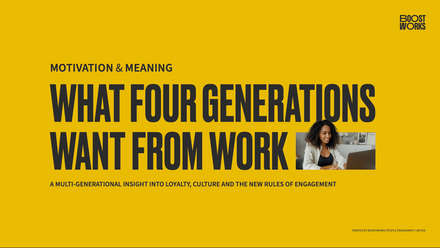Debt Awareness Week: highlighting support and destigmatising debt

First, it's our annual Debt Awareness Week, dedicated to highlighting and destigmatising debt and raising the profile of the free advice and solutions available to help.
Second, it's the one year anniversary of the first pandemic lockdown, a sombre reminder of the difficult 12 months we’ve weathered.
A very different outlook
Usually, Debt Awareness Week heralds positivity – a chance for people to start anew. But this year, we estimate that the number of people affected by coronavirus in severe problem debt has almost doubled since the beginning of the outbreak to 1.2 million people. Coupled with the continuing uncertainty around how and when vitally important schemes such as furlough will wind down, we’re holding Debt Awareness Week in a very different atmosphere.
Employers need not be told how difficult the last year has been. Balancing the financial needs of your employees with the devastating economic impacts of coronavirus on a business for an entire year is an unenviable task. Those employers with a proactive attitude towards their employees’ financial health will doubtless have worried about how best to support their workforce.
The last year has been especially difficult for those groups already at higher risk of debt. These include young adults no longer in education or able to access family support, and families with dependent children – particularly single parents – who have been squeezed by falls in income alongside additional costs linked to care for children during the pandemic. Overall, we estimate that 2.87 million people affected by coronavirus are now at high risk of long-term debt problems.
On top of this, while furlough has been a vital tool for maintaining employment, for many furloughed employees it has represented a difficult income reduction. For those employees who were just managing before, it’s been difficult to avoid debt. Being furloughed with a reduction in salary was the second biggest driver of income loss and worsening debt among our new clients in the first six months of the pandemic. More than a quarter (26%) of clients who faced an income loss and 22% of those whose debts had got worse were in that position because of a reduced income while on furlough.
With this in mind, many employers may be worried that their own mechanisms for supporting employees need extra impetus – so what’s to be done?
The key to recovery and productivity
From a national perspective, StepChange is calling on the government to maintain certain support measures as we emerge from the pandemic, such as keeping the £20 universal credit uplift after September. We’re also asking for a system of interest-free loans and grants to help people safely pay down any arrears or debts they may have built up.
From an employer’s perspective, ensuring you have an up-to-date strategy for supporting employees’ financial wellbeing is going to be key to recovery and productivity. This applies whether your employees have been furloughed on reduced income, full income, or have remained in full time employment since the beginning of the pandemic.
The CIPD’s recent Reward Management Survey suggested that around half of employers did not have a policy on financial wellbeing, and this increased to 64% amongst traditionally lower-paid sectors, many of which have been disproportionately affected by the pandemic.
Employers can consider reaching out, where allowed, to any furloughed employees to ensure they’re aware of the support mechanisms you provide in your workplace as they return to work. It may be that some are already experiencing difficulty and need support, so providing signposting can be very helpful.
We at StepChange are here to help employers to take steps to support your employees’ financial health. We’ve been working with a number of employers to provide services that support employee financial wellbeing that can be slotted into a wider wellbeing strategy. Find out more about the debt advice offered by the UK’s leading debt advice charity StepChange.
The author is Ammer Malik, senior relationship manager at debt support charity StepChange.






